Instagram: Why paying for followers and likes is bad news for real fans
- Published
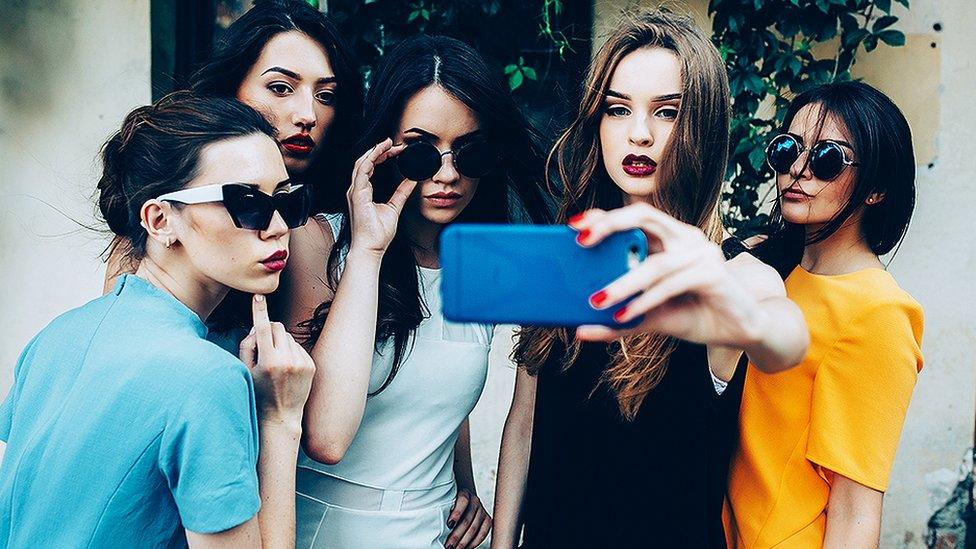
A new study claims there are 10 million fake Instagram accounts, external in the UK and that more than half of users here have bought followers, likes or comments.
But experts in the UK aren't surprised by this, some even say these numbers probably underestimate the problem.
"I actually think that number is really small," says social media strategist Alfie Green, who works with influencers on Instagram in the UK.
"I think it's probably far bigger in reality."
You just need to do a Google search to find apps and programmes promising to give you more followers, more likes and more engagement on your posts.
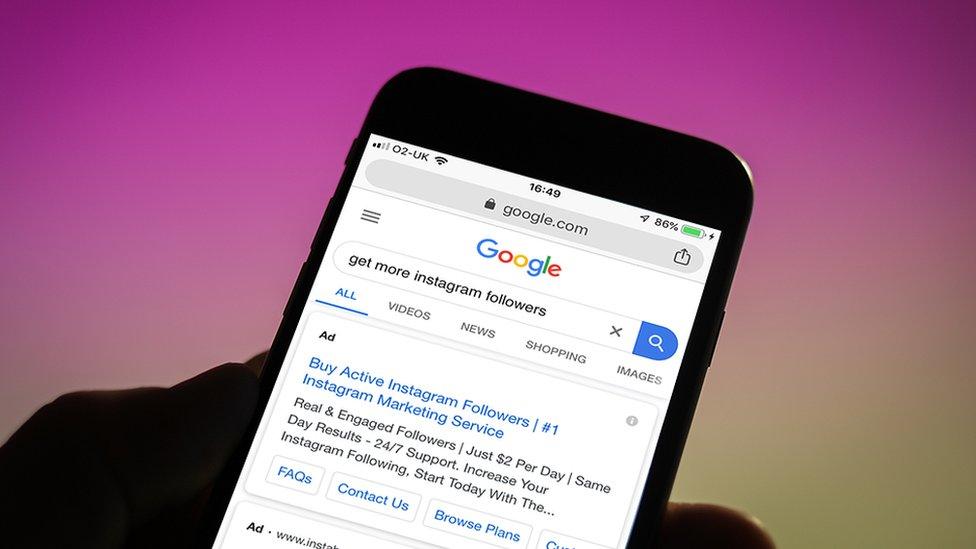
There are apps and services where you can increase your social media presence - for a price
But while it's a tricky world for people working in advertising and marketing, what's the big deal for people who just use Instagram to look at photos of celebs and snoop on their online crush?
'Three out of ten influencers buy fake fans'
"A lot of normal users feel lied to," according to Kamala Bryant, a PR manager who finds influencers to promote products on Instagram.
Kamala estimates three out of every ten influencers she comes across will have fake followers and uses programmes and apps to identify them, so she knows who to avoid working with.
"Influencers who are buying their followers aren't going to care so much about what brands they're working with, because it's inauthentic," she adds.
Alfie says we should all be able to trust stats about other people's Instagram account in the same way we do with a streaming service.
"When we hear that 40 million people watched Stranger Things in a weekend we think that's a lot of people, and it's the same if we hear that an influencer has four million followers - we think they must really influential," he says.
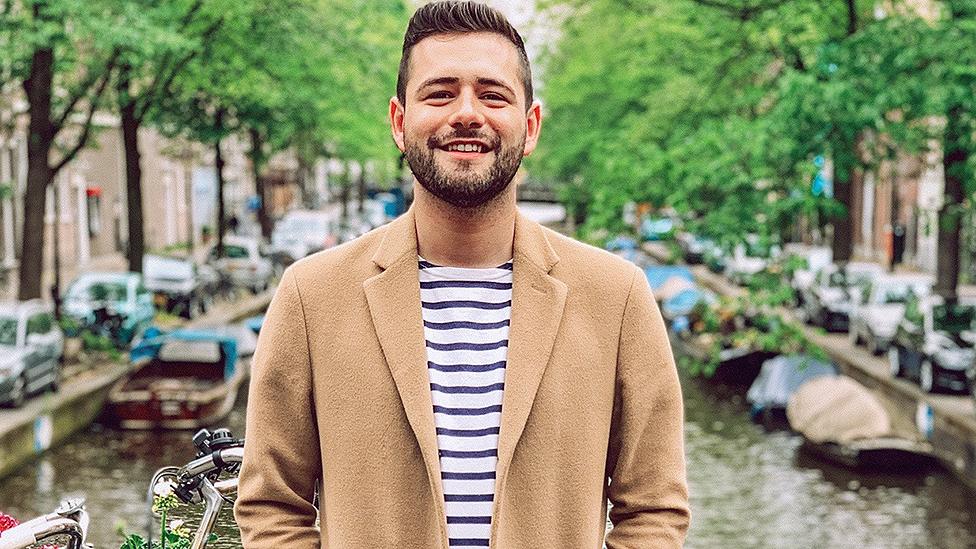
Alfie says if an influencer has fake followers, then followers need to question how authentic what they're promoting is
Sara Tasker, an Instagram coach and author believes the problem for followers comes when an influencer presents themselves as an "authority" on something.
"If 100,000 people follow you and you say you're a fitness influencer, for example, then people will assume the information they're getting from you is of a certain standard," Sara says.
Instagram is well aware of what's going on, and in November last year launched an initiative to tackle the problem.
The company wouldn't give details, but told Newsbeat they remove "millions" of fake accounts every day.
Influencers buying fans is 'outright fraud'
You'll probably have seen sponsored posts in your feed - a post with #AD in the hashtags, where an influencer or celeb talks about a product that they claim to use and endorse.
It's all totally legal at the moment but people who work in the industry want the Advertising Standards Agency (ASA) to change the rules.
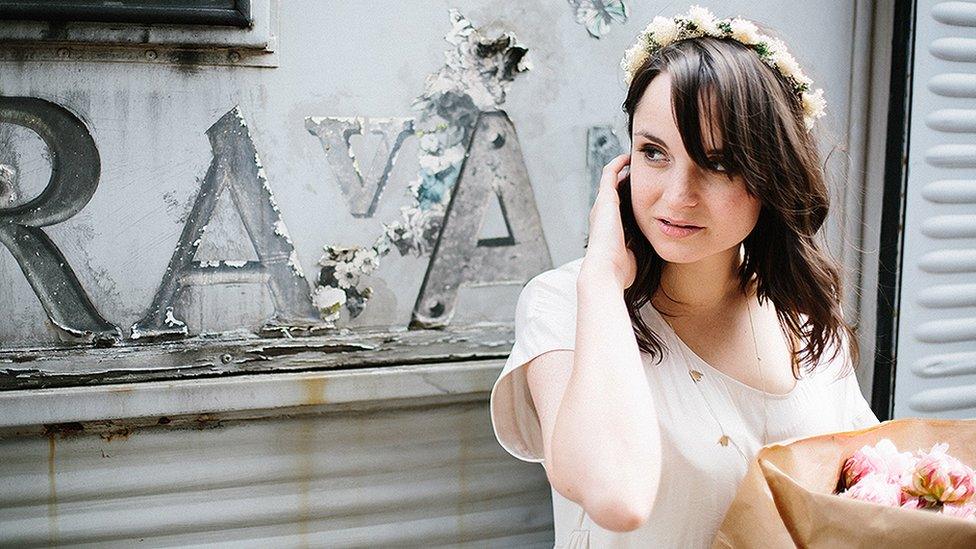
Sara says Instagram "changed her life" and that she gets "very grumpy" when she sees people misusing it
"From a business perspective, if you're working as an influencer, it's outright fraud really," Sara says.
"You're charging a company for exposure to an audience that doesn't exist.
"There are no new rules since influencer marketing has come in, so they're trying to make the old existing laws and regulations fit this new way of working.
"It's a clumsy fit and it doesn't necessarily cover all of these loopholes."
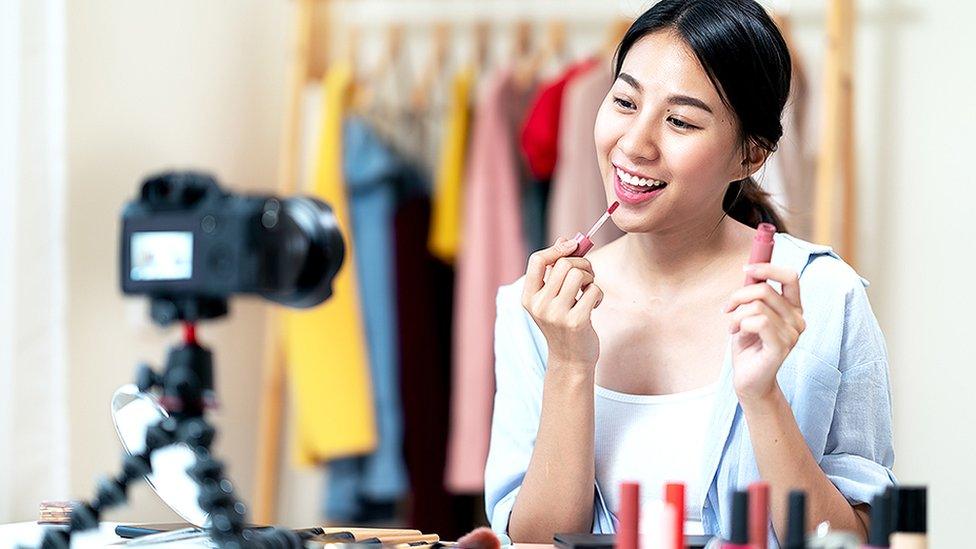
Influencers are required to let followers know if they've been paid to promote a product
While a little bit of faking might seem harmless for anyone who fancies themselves as an influencer, it could damage both their own chances - and the industry in general.
"You do often see a lot of people say: 'The first step is that I can buy 100,000 followers and that'll be my pick up and I'll start from there," says Alfie.
"But with algorithms now, it doesn't work that way. So it can really affect your chances of being an influencer."
'No one wants to be mugged off'
Sara has more than 216,000 followers on Instagram (but she's been doing it since the early days) and says people who come to her for advice often admit they've already bought fake followers.
"They say it's the only way they can keep up with everybody else," she says.
"But if everybody is buying that engagement then actually the only people who are making any money are the people selling the fake likes and everybody else."
Whether you want to be an influencer or just keep posting photos of your breakfast, Sara, Alfie and Kamala all recommend that we make time to look at who we follow on Instagram and work out who's worth our time and who might be trying to pull a fast one.
"We're all becoming much savvier. No one wants to be mugged off. We want more than just aspirational content," says Kamala.
"People should be aware of what they're engaging with."


Follow Newsbeat on Instagram, external, Facebook, external, Twitter, external and YouTube, external.
Listen to Newsbeat live at 12:45 and 17:45 weekdays - or listen back here.